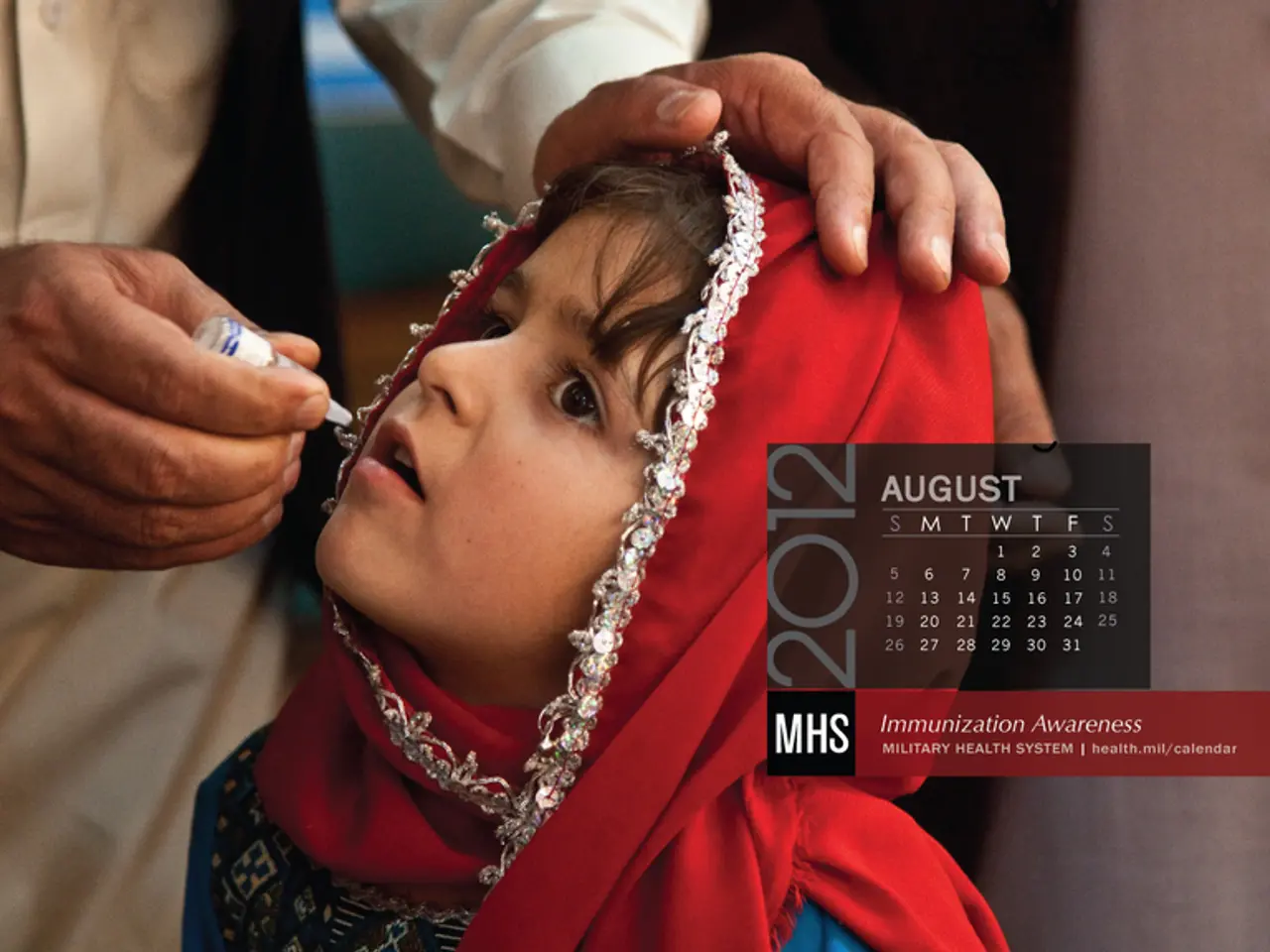Military Anthrax Vaccine: Legal Disputes, Compensation, and Safety Concerns
In the late 1990s, the U.S. Department of Defense (DoD) initiated the mandatory Anthrax Vaccine Immunization Program (AVIP), a move that was controversial as the Food and Drug Administration (FDA) had not yet tested the vaccine for protection against inhaled forms of anthrax.
The anthrax vaccine, a shot that protects against a serious bacterial illness, has been a subject of debate in military public health law and veterans' health policy. The vaccine is administered over 18 months, with annual boosters required to maintain protection.
The U.S. military views anthrax as a potential biological weapon, leading to the vaccination of military personnel, especially during periods of concern about biological warfare threats such as during the Gulf War and the early 2000s. However, controversies largely stemmed from concerns about vaccine safety and adverse health effects experienced by some service members.
Key points include historical lawsuits and legal challenges by military personnel refusing the vaccine or alleging harm. These lawsuits focused on whether mandatory vaccination policies were lawful and if informed consent was properly obtained. Some veterans sought recognition of vaccine-related health conditions for disability claims.
Controversies also arose due to the use of thimerosal, a substance that caused the immune system to overreact in some people, in some batches of the anthrax vaccine. Soldiers who reported side effects after receiving the vaccine often faced disciplinary action, and one soldier even faced charges for violating their free speech rights.
Despite these controversies, the U.S. military has historically maintained vaccine mandates as a preventive health measure against biological warfare threats. They offer limited exemptions but generally emphasize public health and operational readiness.
The Centers for Disease Control and Prevention (CDC) recommends the vaccine for certain individuals at high risk of exposure, including laboratory workers, animal handlers, military personnel, first responders, and those at risk of a bioterrorism attack. However, the CDC does not recommend the vaccine to the general public, as most people never come into contact with anthrax.
In response to concerns about the anthrax vaccine, the CDC created the Anthrax Vaccine Research Program (AVRP) in 1999 to study the safety and effectiveness of the vaccine. The AVRP has conducted several large, high-quality studies, showing that the vaccine is safe and effective.
However, the use of the anthrax vaccine has been controversial, with some military personnel filing lawsuits, arguing that the anthrax vaccination was experimental. In 1991, the anthrax vaccination program began for United States military personnel deployed during the Gulf War.
Anthrax can be contracted by breathing in spores, consuming contaminated animal products, or through a cut or scrape after contact with animals or their products. People who receive the vaccine because they have had exposure to anthrax and feel ill should tell their doctor, as they might need immediate medical care.
Side effects are usually mild and go away within a few days, but a person should contact their doctor if they experience any severe or unusual side effects after receiving the vaccine. The U.S. General Accounting Office (GAO) performed a survey in response to concerns about the anthrax vaccine and found that the rate of adverse events was significantly higher than stated by published vaccine information.
In summary, the anthrax vaccine, while a key defense against biological warfare threats in military contexts, has been a subject of historical controversies and lawsuits related to mandatory vaccination policies and concerns about side effects. However, with ongoing research and improvements in the vaccine, the U.S. military continues to emphasize its importance as a preventive health measure.
- The anthrax vaccine is designed to protect against a serious bacterial illness, but its mandate in the U.S. military has been a controversial topic due to concerns about vaccine safety and adverse health effects.
- The U.S. Department of Defense's Anthrax Vaccine Immunization Program has faced legal challenges and lawsuits by military personnel refusing the vaccine or alleging harm.
- The U.S. Centers for Disease Control and Prevention recommends the anthrax vaccine for individuals at high risk of exposure, like military personnel and first responders.
- Controversies also arose from the use of thimerosal in some batches of the anthrax vaccine, a substance that caused immune system overreactions in some people.
- The Centers for Disease Control and Prevention created the Anthrax Vaccine Research Program in 1999 to study the safety and effectiveness of the vaccine.
- The CDC conducted several large, high-quality studies, showing that the vaccine is safe and effective, despite some military personnel arguing that the anthrax vaccination was experimental.
- In the late 1990s, the anthrax vaccine program began for United States military personnel deployed during the Gulf War.
- Side effects from the anthrax vaccine are usually mild and temporary, but severe or unusual side effects should be reported to a doctor immediately.
- The GAO found that the rate of adverse events after the anthrax vaccine was higher than stated by published vaccine information, contributing to concerns about the vaccine's safety.
- Despite these controversies, the U.S. military considers the anthrax vaccine as a preventive health measure against biological warfare threats, offering limited exemptions but emphasizing public health and operational readiness.
- Even though the anthrax vaccine is primarily a military concern, it highlights the importance of careful vaccine development, testing, and informed consent processes in medical-conditions and health-and-wellness.
- As the world leverages technology, including cybersecurity, business, personal-finance, travel, shopping, sports, sports-betting, and weather forecasting, it's crucial to address similar issues surrounding the safety and ethical implications of preventative therapies and treatments, such as CBD or mental-health therapies and treatments, in various sectors of lifestyle and finance.




